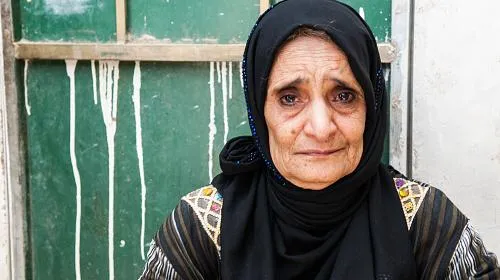AMMAN (June 11, 2018) – International humanitarian organizations in Yemen warn of possible catastrophic consequences of any further escalation of violence around the port city Hodeidah. According to credible reports, a possible attack of the city has never been as imminent as this time, given developments on the ground over recent weeks.
If an attack does take place, casualties on all sides will be high with a likely catastrophic impact on the civilian population. Large parts of the Yemeni population will be at risk of entrapment, displacement, disease and worsening food insecurity, including possible famine. Food imports have already reached the lowest levels since the conflict started and the price of basic commodities has risen by a third. 17 million people in Yemen are already food insecure, and Hodeidah governorate is already classified as being in crisis. People’s coping mechanisms are nearly exhausted. We are gravely concerned that in the absence of commercial imports in case of an attack on the port for any length of time, parts of the population could experience food insecurity levels equivalent to famine.
We share the concerns of the UN Humanitarian Coordinator Lise Grande that “as many as 250,000 people may lose everything— even their lives,” if there is a military attack on Hodeidah port.
In order to prevent high numbers of civilian casualties, mass displacement, possible famine-like conditions, as well as the breakdown of current efforts of UN Special Envoy Martin Griffiths to set up new peace talks, we urge all parties to the conflict to refrain from any further military activities in and around Hodeidah city and the ports of Hodeidah and Saleef, which provide a lifeline to around two thirds of the Yemeni population.
We call on all parties to the conflict to immediately cease violence, keep the ports of Hodeidah and Saleef open and fully functional, and uphold their obligations under International Humanitarian Law to protect the civilian population from the worst impacts of the violence.
Signatories:
CARE
Action contra la Faim
ACTED
ADRA
Danish Refugee Council
Global Communities
Handicap International
International Medical Corps
Intersos
International Rescue Committee
Islamic Relief
Mercy Corps
NRC
Première Urgence – Aide Médicale Internationale
Relief International
Save the Children
Solidarités International
War Child UK
ZOA
About CARE
Founded in 1945 with the creation of the CARE Package®, CARE is a leading humanitarian organization fighting global poverty. CARE places special focus on working alongside women and girls because, equipped with the proper resources, they have the power to lift whole families and entire communities out of poverty. That’s why women and girls are at the heart of CARE’s community-based efforts to improve education and health, create economic opportunity, respond to emergencies and confront hunger. Last year CARE worked in 93 countries and reached more than 63 million people around the world. Learn more at care.org.
Media contacts:
Nicole Harris, nharris@care.org, 404-735-0871
Mahmoud Shabeeb, mshabeeb@care.org, +962-79-146-39-03, Skype: mahmoud.shabeeb_1 (based in Amman, Jordan)

